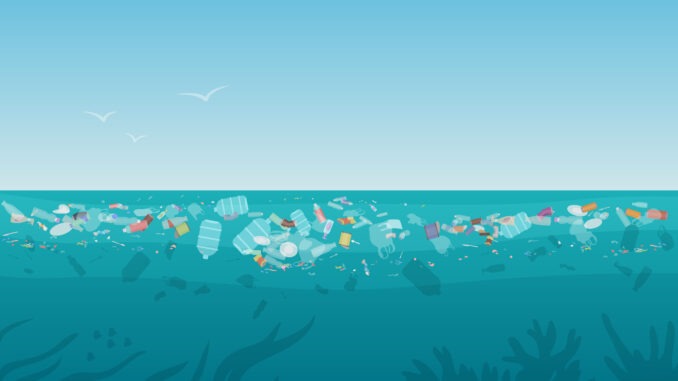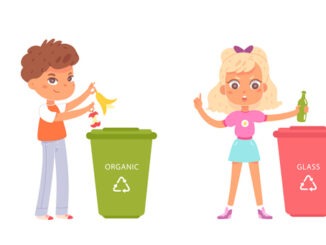
In the third article of the series which focuses on how to address each area of the Eco Schools Award, Helen Burge, deputy COO at The Priory Learning Trust, discusses how your school can help protect our rivers and seas from litter and plastic pollution
I’m very fortunate to live by the sea and often walk down the beach. On sunny days I can see the cranes at Hinkley Point C to the south, and Cardiff to the east, but not always the sea. The 14.5m tidal range (second highest in the world!) means the sea goes out about a mile, exposing the mud flats, hence the nickname ‘Weston-super-Mud’. Many a summer walk I spend tutting at aspirational visitors’ hopes of dipping their toes into actual water and, on more than one occasion, I’ve witnessed cars driving out beyond the warning signs and getting very stuck.
But these are not my biggest bug bears about sharing a beautiful part of the world with other humans – it’s the litter that gets left on the beach after a day out that really winds me up! It is shocking, and especially prevalent after a sunny day when visitors descend to enjoy the simple pleasure of taking the sea air, but then don’t take home everything they bought with them.
At certain times of year the council funds a tractor which scrapes along the tidemark line picking up the rubbish along with the seaweed; it’s an appalling amount, quite horrifying to witness. It’s not just items which shouldn’t have been flushed down the toilets, but clothing, shoes, nappies, broken – and sometimes not broken – buckets and spades which were probably only purchased the morning they arrived to sit on the beach, plus food packaging, ‘disposable’ BBQs and, sometimes, the beach tents or wind breaks. My husband and I have even carried paint pots off the beach!
Litter also ends up on the beach having been dropped in towns and cities and washed down rivers and drains to the beach. If the council didn’t pick up this litter it would get washed out to sea and, maybe, end up further down the coastline -or being eaten by, or entangled inside, wildlife and seabirds.
People power at work
Local groups often arrange litter-picks to supplement the council’s efforts. In 2021 20,000 volunteers removed more than 79,000kg of packaging pollution from across the south-west of England. This year Surfers Against Sewage are encouraging volunteers to each clean 10 miles of land – maybe this is something your school could sign up to? Even if you’re not a coastal school, you’ll know your efforts are helping to protect marine life and sea birds. Maybe there is a river or canal near your school you could ‘adopt’ and, for secondary schools operating Duke of Edinburgh Awards, they could do their volunteering element by keeping this area litter free.
Only one per cent of marine litter floats – the rest sinks to the sea floor. In the North Pacific, due to the currents, there is an area estimated to be twice the size of France full of debris; can you imagine how much is on the sea floor? Much of this litter is plastic, which breaks down over time into microplastic. Next time you sit on the beach and run your hands through the sand, see if you can spot some; unfortunately I don’t think it will take you long.
Surfers Against Sewage state that there are approximately 51 trillion microscopic pieces of plastic, weighing 269 tons, and some of that is sitting on our ‘golden’ beaches. In 2018 the UK government estimated that 100,000 marine mammals and turtles, and one million sea birds, are killed by marine plastic pollution annually. What are we doing to our planet?
Take action!
How can your school take action to change this? As well as recycling our plastic, we could purchase items made from recycled plastic, and we need to reduce our single use plastic consumption. Here are some ideas.
- Encourage the use of reusable water bottles and provide drinking water refill points (ie. taps!) among the whole school community.
- Encourage less plastic packaging in school lunches – talk to your catering supplier.
- Ditch the laminator and have plastic-free displays
- Choose reusable items for hospitality, PTFA events, etc. rather than plastic cups and cutlery
Small, incremental, step changes – all those Yorkshire Tea drinkers already know their tea bags are plastic free; ensure that your staff room tea bags are completely compostable (at the time of writing Asda own brand, Aldi, Lidl, Tetley and Twinings ALL contain plastic). Remember that micro-procurement decisions could add to the microplastics problem.


Be the first to comment